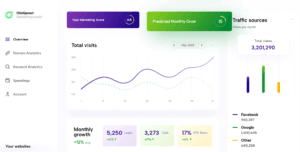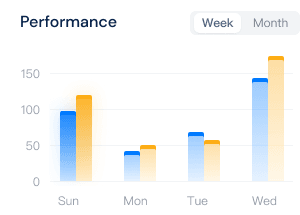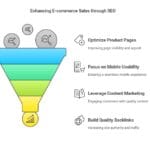
Keyword research is the cornerstone of any successful SEO strategy. Whether you’re building a blog, launching a new website, or enhancing an e-commerce store, understanding the right keywords to target can drive traffic, improve rankings, and boost conversions. In this comprehensive guide, we’ll walk you through how to do keyword research like an SEO pro, leveraging modern tools and strategies to maximize your results.
What is Keyword Research?
Keyword research involves identifying and analyzing the terms people use in search engines to find information, products, or services. These terms, known as keywords, help search engines understand the content of your website and determine its relevance to users’ queries. Effective keyword research bridges the gap between what your audience is searching for and the content you create.

Why is Keyword Research Important?
- Improves Search Engine Rankings: Optimizing content with the right keywords ensures better visibility in search engine results pages (SERPs).
- Drives Targeted Traffic: High-intent keywords attract users actively seeking your products or services.
- Enhances User Experience: By understanding user intent, you can create content that meets their needs.
- Boosts ROI: Targeting the right keywords can lead to higher conversions and revenue.
Step-by-Step Guide to Conducting Keyword Research
1. Understand Your Niche and Audience
Before diving into tools, it’s essential to have a deep understanding of your target audience and niche. Ask yourself:
- What problems does my audience need solving?
- What language or terminology do they use?
- What topics are trending in my niche?
Use forums, social media groups, and competitor websites to gain insights into your audience’s pain points and interests.
2. Brainstorm Seed Keywords
Seed keywords are the foundation of your research. These are simple, broad terms that define your niche. For example, if you run a fitness blog, seed keywords might include:
- Fitness tips
- Weight loss
- Strength training
Write down all the terms that come to mind related to your business or website.
3. Use Keyword Research Tools
Leverage professional tools to expand and refine your keyword list. Here are some of the best tools:
Free Tools:
- Google Keyword Planner: Ideal for finding keyword ideas and search volumes.
- Answer the Public: Generates keyword ideas based on common questions and topics.
- Google Search Suggestions: Use the autocomplete feature to discover long-tail keywords.
Paid Tools:
- Ahrefs: Provides detailed keyword metrics, including search volume, keyword difficulty, and related terms.
- SEMrush: Offers competitive analysis and keyword insights.
- Moz Keyword Explorer: Focuses on keyword opportunities and SERP analysis.
4. Analyze Keyword Metrics
Not all keywords are created equal. Evaluate potential keywords using these metrics:
Search Volume:
Indicates how many people search for a term monthly. High-volume keywords can drive significant traffic, but they’re often more competitive.
Keyword Difficulty (KD):
Measures the competition level for ranking a keyword. Target low-to-medium difficulty keywords, especially if your website is new.
Cost Per Click (CPC):
If you’re running ads, CPC indicates how much advertisers pay for a click on the keyword.
User Intent:
Understand the purpose behind the search. Keywords can have different intents:
- Informational: “How to bake a cake”
- Navigational: “Facebook login”
- Transactional: “Buy running shoes”
5. Identify Long-Tail Keywords
Long-tail keywords are longer, more specific phrases. While they typically have lower search volumes, they often lead to higher conversions due to their specificity. Examples include:
- “Best running shoes for flat feet”
- “Affordable SEO tools for small businesses”
Long-tail keywords are ideal for targeting niche audiences and ranking quicker.
6. Analyze Competitors
Studying your competitors can reveal valuable keyword opportunities. Use tools like Ahrefs or SEMrush to analyze:
- Their top-ranking pages.
- The keywords they’re targeting.
- Content gaps you can fill.
7. Group Keywords by Topic
Once you have a list, group related keywords into clusters. For example, a travel blog might have clusters like:
- “Budget travel tips”
- “Best destinations in Europe”
- “Travel gear reviews”
Keyword clustering helps you structure your content more effectively and improves internal linking.
Advanced Strategies for Keyword Research
1. Leverage Local Keywords
If you operate locally, target location-based keywords such as:
- “Best Italian restaurant in New York”
- “SEO services in Florence”
Use tools like Google My Business insights to discover local search trends.
2. Focus on Semantic Search
Search engines have evolved to understand context. Incorporate related terms, synonyms, and natural language into your content. For example:
- Main keyword: “Digital marketing tips”
- Related terms: “Online marketing strategies,” “SEO best practices”
3. Monitor Trends
Stay ahead by targeting trending keywords. Tools like Google Trends and Exploding Topics can help you identify emerging search terms.
4. Use Schema Markup
Enhance your content’s visibility by implementing schema markup. For example, FAQs or product reviews can improve CTRs and highlight additional keywords.
Common Keyword Research Mistakes to Avoid
1. Ignoring Search Intent
Focusing solely on search volume without understanding intent can lead to irrelevant traffic.
2. Targeting Overly Broad Keywords
While high-volume keywords seem attractive, they’re often competitive and less likely to convert.
3. Overlooking Seasonal Trends
Some keywords perform better during specific times of the year. Plan content accordingly.
4. Keyword Stuffing
Overusing keywords can harm user experience and lead to penalties from search engines.
Tracking and Refining Your Keywords
Keyword research isn’t a one-time task. Regularly monitor your performance using tools like:
- Google Search Console: Tracks keyword rankings and CTRs.
- Ahrefs/SEMrush: Analyzes changes in rankings and identifies new opportunities.
Update your content to reflect new trends, user needs, and evolving search engine algorithms.
Final Thoughts
Mastering keyword research is essential for any SEO professional. By following the strategies outlined above, you can create a data-driven keyword strategy that drives targeted traffic, improves rankings, and supports your business goals. Remember, effective keyword research is not just about finding terms—it’s about understanding your audience, their intent, and crafting content that delivers value.
Start implementing these techniques today and watch your SEO efforts yield impressive results!




